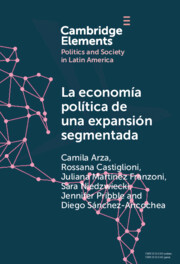Element contents
La economía política de una expansión segmentada
Published online by Cambridge University Press: 24 April 2024
Summary
Keywords
- Type
- Element
- Information
- Online ISBN: 9781009443654Publisher: Cambridge University PressPrint publication: 16 May 2024



